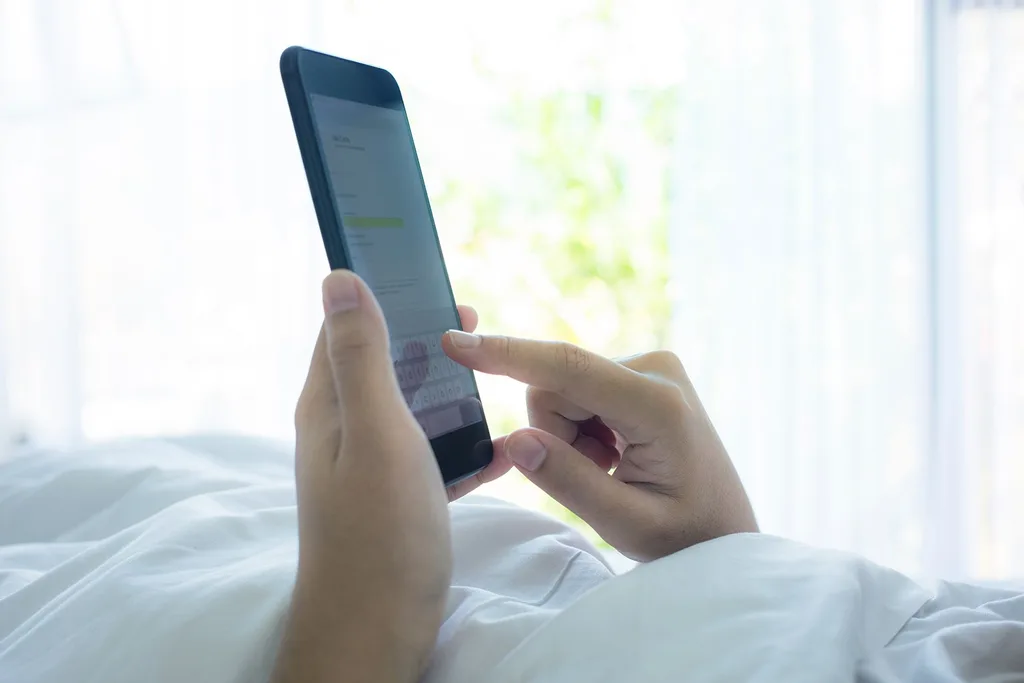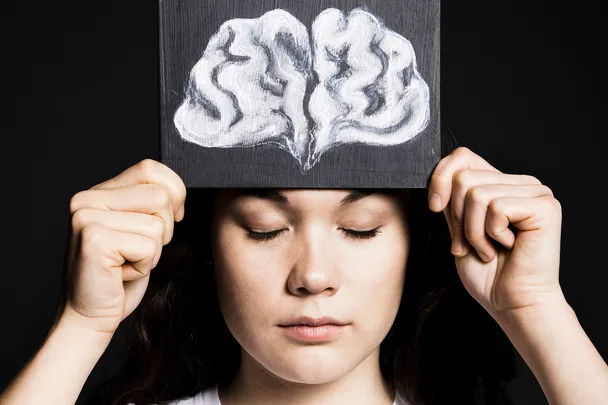Whether it’s the constant pinging of notifications on your phone, the incessant bad news on your newsfeed, or the fact that you can never, ever stay up-to-date with your emails, it can be hard to feel like you’re killin’ it, when you seem to be constantly in catch-up mode. So at the dawn of artificial intelligence invading our lives (more than it already does) and microchips being inserted into our arms (we’re looking at you, Sweden), we ask the question: how can we futureproof our brains for what’s to come?
1. Change The Conversation
The first step, says neuroscientist and author of The Women’s Brain Book, Dr Sarah McKay, is to stop “demonising” technology. She believes technology can be very positive in the way it connects people, allows us to work efficiently and can even have a positive effect on our mental health.
“A huge part of what we know, in terms of keeping people mentally healthy, is making them feel useful and engaged and purposeful,” she explains. “So, if you’re reading emails [and using technology], then you’re staying cognitively engaged and it’s intellectually challenging. And that’s good news for your brain.”
However, she says, if you feel that you literally don’t have the “capacity” to switch o the technology in your life, then that can then become an issue. “So, while there’s many great things about modern life, it sometimes displaces some of the things that we still need to be doing.” Essentially, if your use of technology is stopping you from having calm in your life and preventing you from the stress-busting and stress-buffering activities we should all be doing as a counterbalance to our tech-full lives, then it’s time to help your brain cope.
2. Have A Digital Sunset
A notion that is gaining traction, ironically on the internet, is the digital sunset challenge, where all technology is turned off from 7pm-7am. As difficult and alien as that may sound, McKay believes it could make a huge difference to our brain health.
“When we talk about screen time at night, I don’t think we should reduce it, I think we should get rid of it altogether,” she explains.
McKay says that by never giving our eyes and brains a break from the multiple screens we use, we’re preventing ourselves from recognising “sleep signals” and therefore having less quality sleep, which in turn can affect our health quite acutely.

3. Avoid Task-Switching
Interestingly, McKay also singles out multi-tasking, which is almost a badge of honour for most women (this writer included), saying that multi-tasking is not a skill to be proud of. She believes that by “task-switching” we are actually not being as efficient as we think. “Our brains simply cannot multi-task: you’ve got one beam of light and you can only focus it in one direction,” she explains.
Blaming smartphone and email notifications, McKay says micro-interruptions are not beneficial. “If you’re opening up your email, then going back to the document you’re writing, and then answering the phone, and then going back to the document, and then checking your phone … well, your performance on all of those tasks decreases and your stress levels will rise.” Bottom line? Mindfully focus on just one task at a time.
4. Get Green Time
Swapping “screen time for green time” is a motto McKay says we should all live by. We are, of course, essentially animals, which is something she thinks we lose sight of from time to time. “I do think that we have completely forgotten that we are wildlife too,” she explains. “Our brains evolved to help us constantly move through the world and perceive the world and to interact with nature. And when we are sitting at a desk, at a computer, we’re not doing that. We’re … not outside observing.” McKay also stresses the fact that we all need to move more and avoid sitting down for extended, repeated periods of time.
5. Respect The Light Cycle
Lastly, following on from the digital sunset, McKay also believes we regularly forget the connection between our brains and the light/dark cycle.
“[By being on our screens in the evening] we’re becoming dark deprived at night,” she explains. “We’re spending all day sitting in front of a computer under artificial light, so we’re under consuming sunlight during the day. And then we’re … spending time at night with LED lights blazing from the ceiling, the television, the iPhone [and the] Kindle when we go to bed, and we are not paying respect to the fact that we evolved on planet Earth.”
McKay believes darkness is a fundamental signal for us to sleep and restore. And, as we all know, sleep is the best weapon against … well, pretty much everything.
This article appeared in this month’s February issue of Marie Claire. On sale now.










